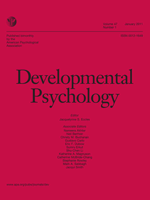Abstract:
Although deficits in working memory ability have been implicated in suboptimal decision making and risk taking among adolescents, its influence on early sexual initiation has so far not been examined. Analyzing 2 waves of panel data from a community sample of adolescents (N = 347; Mean age[baseline] = 13.4 years), assessed 1 year apart, the present study tested the hypothesis that weak working memory ability predicts early sexual initiation and explored whether this relationship is mediated by sensation seeking and 2 forms of impulsivity, namely acting-without-thinking and temporal discounting. The 2 forms of impulsivity were expected to be positively associated with early sexual initiation, whereas sensation seeking was hypothesized to be unrelated or to have a protective influence, due to its positive association with working memory. Results obtained from structural equation modeling procedures supported these predictions and in addition showed that the effects of 3 prominent risk factors (Black racial identity, low socioeconomic background, and early pubertal maturation) on early sexual initiation were entirely mediated by working memory and impulsivity. The findings are discussed in regard to their implications for preventing early sexual onset among adolescents.
Authors
- Laura M. Betancourt
- Nancy L. Brodsky
- Joan M. Giannetta
- Hallam Hurt
- Atika Khurana
- Daniel Romer


